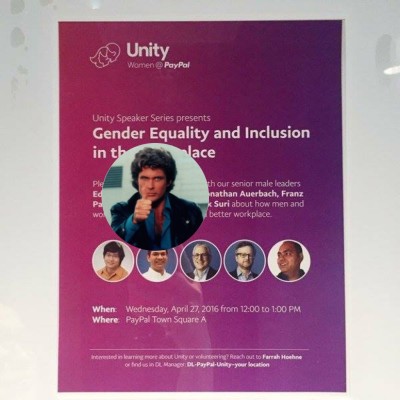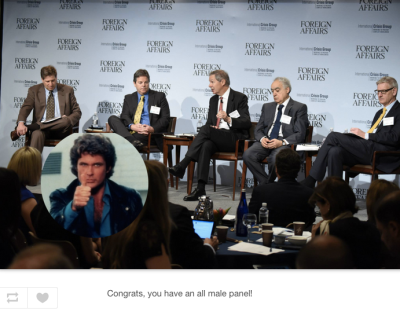I’ve been thinking a lot about tipping points of late.
According to Malcolm Gladwell’s debut book, The Tipping Point: How Little Things Can Make a Big Difference (2000), a tipping point is “the moment of critical mass, the threshold, the boiling point” when an “idea, trend, or social behavior crosses a threshold, tips, and spreads like wildfire.”
The term apparently originated in epidemiology to describe a situation when an infectious disease can no longer be prevented from spreading more widely. Tipping points are essentially turning points where whatever comes next can not be the same as what came or was before.
In my fields of study, theology and philosophy, it’s clear that feminist scholarship reached its tipping point long ago—well before I began my graduate studies in the late 1990s. As many readers of this blogsite know, Women’s Studies is an established department in many institutions of higher learning (even as it continues to face questions about its legitimacy and continuing pressures of budget cuts in some quarters), feminist journals have long been producing high-quality articles (viz. the flagship Journal of Feminist Studies in Religion was founded more than three decades ago in 1983), and even academics who don’t explicitly identify as feminist can no longer simply ignore “the woman question” in their work as legions of (male) academics once did as a matter of course without repercussion.
That feminist scholarship has long crossed the threshold at least in academia, however, does not, of course, mean that our work as feminists within the academy is complete.
For instance, how many of you have ever attended a conference where all the panelists were men? That still all-too-common phenomenon even has a cheeky name – the “manel” or all-male panel. This hilarious “Congrats, you have an all male panel!” tumblr is attempting to document “all male panels, seminars, events, and various other things featuring all male experts.” For kicks, readers are encouraged to add a David Hasselhoff stamp to their photo or screenshot before submitting. (In all fairness to Hasselhoff, there’s no evidence that he approves of manels; the tumblr’s founder apparently selected him as a quasi-patron saint of all-male gatherings given his embodiment of “white masculinity” during his heyday on the hit 1980s t.v. show, Knight Rider).

photo source
* * *
Any feminist who scrolls through the submissions will likely find herself laughing at the hilarity of the smug David Hasselhoff stamp, while simultaneously lamenting the fact that manels in this day and age still exist.
Clearly then, gender diversity (on panels) has not yet reached the tipping point. Yet the “name and shame” strategy of this tumblr and development economist’s Owen Barder’s encouragement for experts to take “the Pledge” (“At a public conference, I won’t serve on a panel of two people or more unless there is at least one woman on the panel, not including the Chair” )– are clearly attempting to make manels a thing of the past.

There are so many more “tipping points” that I’d like to see in academia. Perhaps the biggest one is getting to a situation where it would no longer be acceptable to frame racial issues in black and white terms—as if the matter in the U.S. or elsewhere was binary. I’d also love to get to the tipping point where anthropocentrism in scholarship was as noticeable and problematic to readers as, say, pro-slavery attitudes that one can find in many classical texts.
What tipping point would you like to see? What small or big thing(s) are you doing to bring it about?
Grace Yia-Hei Kao is Associate Professor of Ethics and Co-Director of the Center for Sexuality, Gender, and Religion at Claremont School of Theology. She is the author of Grounding Human Rights in a Pluralist World (Georgetown University Press, 2011) and co-editor, with Ilsup Ahn, of Asian American Christian Ethics (Baylor University Press, 2015).



I envision a world where raising and killing animals for food (especially factory farming) is as appalling to us as the institution of slavery is to the majority of people.
LikeLike
Love this! Thanks for writing!
LikeLike
I would like to see peace as legitimate a study as war.
LikeLike
We’re not quite getting there in practice, but at least in institutions of higher learning, peace studies is a major and growing field of research!
LikeLike
I would like to see Western Medicine embrace hospice or palliative care at end of life before a person’s health gets to the completely dire state. I would like to see death be a topic we are all able to talk about. I would like to see Compassionate Choices legislation be standard in all states.
LikeLike
Ann – a fantastic list! I remember reading somewhere that more than half of all Medicare dollars are spent on the last 8 months of a person’s life and even in that amount, in most cases the possibility of a cure is no longer possible, but folks don’t want to move to palliative care because they (or their family members) don’t want to “give up.” I share this goal with you!
LikeLike
I would like to see (and often write about) an increase of kindness in the world–a tipping point where what I see as bubbles of kindness reach a tipping point that is the joining of all those bubbles of kindness until it blankets the planet. This is a feminist and human issue that includes kindness to other species, like, don’t hunt them into extinction. It is, of course, also political………..but let’s not go there right now. (You all know who I mean.)
LikeLike
Barbara – I love this; a kindness tipping point!
LikeLike
P.S. I have a DVD (Broadway Theatre Archive) from 2001 of Jekyll and Hyde the musical starring Hasselhoff. As a work of musical theater, Jekyll and Hyde is so dreadful (overwrought) that it goes clear round the bend and comes back as magnificently awful. But Hasselhoff is pretty good as both Dr. Jekyll and Mr.Hyde. Even when he’s singing both of them in one song. The best part of the DVD is his backstage kick (“Yeah!”) caught by the camera after the curtain. He obviously survived the surfing TV show.
LikeLike
That’s awesome about Hasselhoff. Folks used to tell me that he couldn’t walk around without escorts/bodyguards in Germany – he was such a big star there!
LikeLike
I would like to see more of the heroine’s journey trope, instead of just the hero’s journey. I’m still trying to define the heroine’s journey- but it has a lot more to do with motherhood, community building, and inclusiveness than the over-the-top individualism of the hero’s journey.
LikeLike
NMR -Thanks for writing; I can appreciate the need. I remember reading somewhere that J.K. Rowling wanted the lead of the books to be a girl (not Harry), but she realized (sadly) that her books wouldn’t sell as well with a female lead because they’d be categorized pejoratively as “chick lit.” Sigh…
LikeLike
It’s almost as if we are talking about Hillary Clinton vs. Trump — I pray for Hillary and her success and for other women leaders in the coming election in the U.S.
LikeLike
Ha ha! Isn’t it funny how the political scene seeps into everything we see and do these days?
LikeLike
Love this, thumbs up!
LikeLike
Thanks for writing and the affirmation!
LikeLike
Hi Grace, I love this post. I stumbled upon it and completely agree with your point on “the woman question” not being an afterthought. I’m working on popularizing “the fallacy of universal maleness” as the primary reference point for truth claims in philosophy. I’m not alone on this.
In any case, just wanted to draw attention to the dynamic that all the responses in the comment section have been female. <3 it. Looking forward to meeting you in November in Boston!
LikeLike